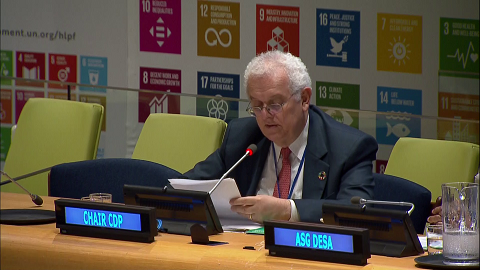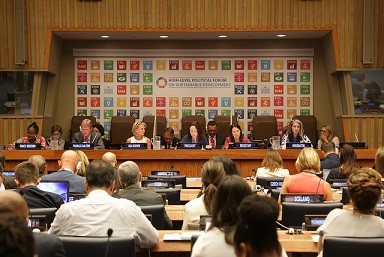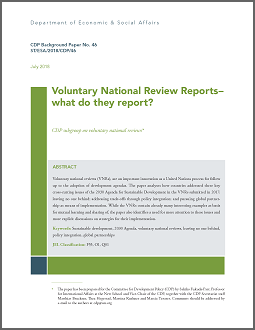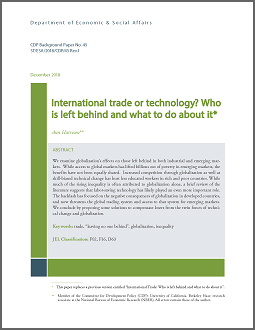Tag: Leaving no one behind
Leaving no one behind
25 July 2018
This paper aims to explain the politics that led to the term ‘leaving no one behind’ as a core theme of the 2030 Agenda.
19 July 2018
This second lab, organized by the Secretariat of the Committee for Development Policy (CDP) together with the Division for Inclusive Social Development and held on 16 July, addressed measures taken at national level in selected countries to improve the ...
17 July 2018
On 16 July the Chair of the Committee for Development Policy (CDP), Professor José Antonio Ocampo, introduced the Committee’s 2018 report, focusing on the CDP’s findings on “Leaving no one behind” at the High-level Segment of the 2018 ECOSOC session. H ...
16 July 2018
One central pledge of the 2030 Agenda for Sustainable Development is to ensure that no one is left behind. On 13 July the High-level Political Forum (HLPF) dedicated an entire session on this theme with a view to synthesize messages from earlier sessio ...
13 July 2018
The Committee for Development Policy (CDP) will be participating at various events of the High-level Political Forum (HLPF) on Sustainable Development, taking place from 9 - 18 July 2018. The theme of this meeting, convened under the auspices of the Ec ...
12 July 2018
The paper analyses how countries addressed leaving no one behind, addressing trade-offs through policy integration and pursuing global partnership as means of implementation in the VNRs submitted in 2017.
5 July 2018
The paper examines globalization’s effects on those left behind in both industrial and emerging markets.
8 June 2018
This paper provides an overview of the conceptual and empirical issues involved in the overarching goal of “leaving no one behind”.
11 May 2018
The report addresses the five themes discussed: (1) leaving no one behind; (2) the triennial review of least developed countries; (3) monitoring the progress of countries that are graduating and have graduated from the list of the least developed countries; (4) improved assistance for graduating LDCs; and, (5) reviews of the implementation of the 2030 Agenda for Sustainable Development.











Follow Us